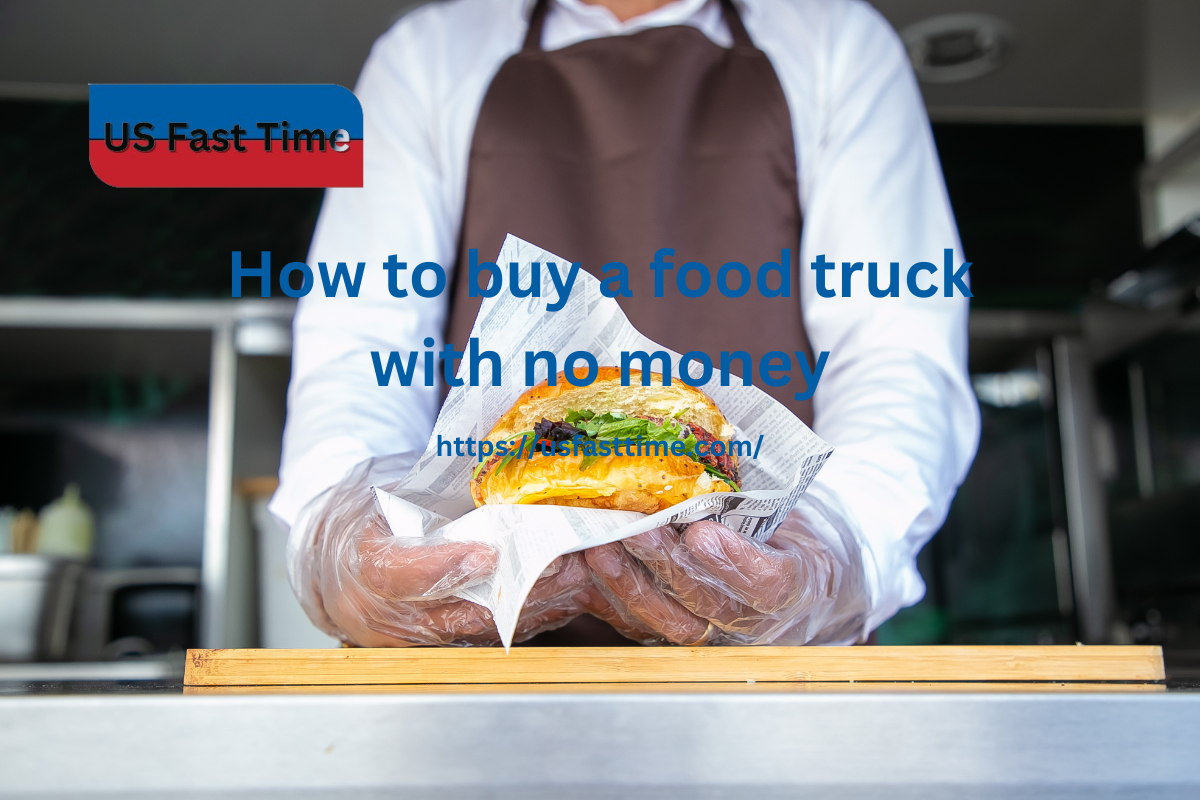
How to buy a food truck with no money, Buying a food truck with no money upfront can be a challenging endeavor, but it’s not entirely impossible.
1. Explore Financing Options:
- Look into financing options such as small business loans, microloans, or lines of credit. Research local banks, credit unions, or online lenders that may offer financing to entrepreneurs with limited capital.
- Consider alternative financing options like peer-to-peer lending platforms or crowdfunding campaigns. These platforms allow you to raise funds from friends, family, or the public to support your business venture.
2. Seek Partnerships or Investors:
- Partner with someone who has the capital to invest in the food truck business. This could be a family member, friend, or business associate who believes in your concept and is willing to provide financial support in exchange for a share of the profits or ownership stake in the business.
- Pitch your business idea to potential investors or angel investors who specialize in funding startups and small businesses. Prepare a solid business plan and financial projections to demonstrate the potential return on investment and convince investors to back your venture.
3. Consider Lease or Rent-to-Own Options:
- Explore lease or rent-to-own agreements with food truck vendors or owners who are willing to finance the purchase of their vehicles. This allows you to acquire a food truck with little to no money upfront and make monthly payments over time until you own the truck outright.
- Negotiate favorable terms and conditions that suit your budget and business needs. Be sure to read the fine print and understand the terms of the agreement before signing any contracts.
4. Barter or Trade Services:
- Offer your skills, products, or services in exchange for a food truck. Approach food truck owners or sellers and propose a barter or trade arrangement where you provide something of value in return for their vehicle.
- This could involve offering catering services, marketing assistance, or other goods and services that the seller may find valuable. Be creative and open to negotiation to reach a mutually beneficial agreement.
5. Start Small and Grow Over Time:
- Consider starting with a smaller, more affordable food cart or trailer instead of a full-size food truck. This allows you to enter the business with lower initial costs and gradually reinvest profits to upgrade to a larger vehicle in the future.
- Focus on building a loyal customer base and generating steady revenue before expanding your operations. As your business grows, you can explore additional financing options to scale up and invest in a larger food truck.
6. Explore Government Grants or Programs:
- Research government grants, subsidies, or programs that support small business development and entrepreneurship. Some government agencies or nonprofit organizations offer funding opportunities and resources specifically tailored to food truck operators and other food-related businesses.
- Check with local economic development agencies, small business administration offices, or industry associations for information on available grants or assistance programs in your area.
7. Get Creative and Resourceful:
- Think outside the box and explore unconventional ways to acquire a food truck with limited resources. Look for used or secondhand vehicles at affordable prices, consider DIY or refurbishment projects to save on costs, or explore shared ownership or cooperative arrangements with other aspiring entrepreneurs.
- Be resourceful and proactive in seeking out opportunities, networking with industry contacts, and leveraging your skills and connections to overcome financial barriers and achieve your goal of owning a food truck.










